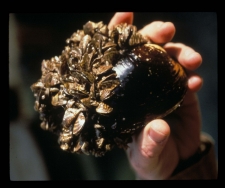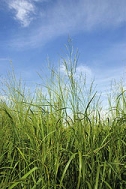Welcome! Click on a tab below to find books, articles, and websites for use in this course.
You'll need a College of DuPage Library card in order to use most of the resources below from off campus. If your card is not working, it may need to be reactivated.
Questions? Feel free to use my contact info to the right, stop by the Reference Desk, or contact us by email or chat.
Lab 2: Environmentally Responsible Advertising
To get started, think like an advertiser: if I wanted to get my message out to people concerned with the environment, what magazines would they tend to read?
- American Forests
- Mother Earth News
- Audubon
- National Geographic
- Backpacker
- National Parks
- Discover
- National Wildlife
- E: The Environmental Magazine
- Scientific American
Lab 3: Environmental Impact Of Natural And Man-Made Disasters
Getting Started: Reference Books
Encyclopedia of Disaster Relief 2011. Online. Use the search within box at the right of your screen (below the encyclopedia title), not the top left search box in order to get good search results.
Environmental Disasters: a Chronicle of Individual, Industrial and Governmental Carelessness General GE 140 .D383 1998
Failed Technology General TA 169.5 .F74 1995
You can also use the Gale Virtual Reference Library to get more info about your topic.
Creating Your Own Searches: Finding Books
Click on Catalog in the top green toolbar. Try adding some keywords for your topic:
- Natural Disasters
- Volcanoes
- Earthquakes
- Acid Rain
- Endangered Species
Be sure to manage your search results as necessary: are you looking for books, ebooks, DVDs? What dates are appropriate for your search?
Creating Your Own Searches: Finding Articles
Click on Databases on the green toolbar at the top of your screen. Your top choices are
Academic OneFile. Type in your topic. Try narrowing using the "Related Subjects" box on the left of your screen.
Academic Search Premier has a lot of scientific, popular, and scholarly info.
Newspaper Source: includes the Chicago Tribune, the New York Times, and other major newspapers, and so has a mix of local, national, and global information.

TRY IT: Zebra mussels
Lab 4: Chemicals in the Environment: Agriculture and Food Industries
Pesticides and Herbicides
You can start this project in a couple of ways:
- Go to your local hardware store or garden center and check the active ingredients in pesticides and herbicides to make a list of possibilities to explore.
- Earth-Wise Guide to Toxicity Ratings lists generally available pesticides with toxicity ratings created by the Texas Cooperative Extension Service and City of Austin.
Now, find more background information
Kamrin, M. A., ed. Pesticide Profiles: Toxicity, Environmental Impact, and Fate. 1997. Call Number: Reference RA 1270 .P4 K285 1997
Sittigs Handbook of Pesticides and Agricultural Chemicals. 2005. ebook from Knovel database.
National Pesticide Information Center is a website that will let you search through the alphabetical listing for your pesticide active ingredient or go to the General Factsheets for easy-to-understand information on a number of pesticides. The technical fact sheets give more advanced information, especially on health risks.
Database:
Knovel contains Chemical and Food Additive data from many respected reference works.
TRY IT: Resmethrin (active ingredient in Raid)
Food Additives
You can get started on this project in four ways:
- Check foods you eat regularly for preservatives and other additives listed
- The Food and Drug Administration Food Additive lists additives by use (and, often, product).
- Use the Federal Government's Generally Regarded as Safe (GRAS) List. . Check the Code of Federal Regulations(CFR), Chapter 21 Parts 182, 184 and 186.
Books to use
Encyclopedia of Food Science and Technology. Online.
Foods & Nutrition Encyclopedia. 2 vols. Call number: General TX 349 . F575
Sax's Dangerous Properties of Industrial Materials. Online.
Databases:
Micromedex
Type in name of chemical on search line. May get data on MSDS, poison considerations, reproductive effects, and other health issues. See handout at the bottom of the screen for access.
Knovel has chemical and food additive data from many respected reference works.
Specific Internet Sites:
Materials Safety Data Sheets (MSDS) for Chemicals
Gives access to company-provided information on the safety and health effects of thousands of chemicals when handled in bulk.
Hazardous Substances Data Bank
Comprehensive, peer-reviewed toxicology data for about 5,000 chemicals. Excerpts of relevant data. Must locate original source for full information.
Search the Internet
If you want to see sites with information about an additive (or pesticide), use a search engine, such as Google or Yahoo or science gateway such as Scirus.
In most search engines, use quotation marks ("....") around phrases or + before words that must be present in any Internet site retrieved. Example: + "sodium bisulfite" +health
Remember that these topics have attracted a wide range of opinions. To help determine if a website is good or not, check out the COD Library's guide to evaluating information.
Lab 5: Environmental Issues In The News
If you don't have access to enough newspapers and magazines on your chosen topic at home, you may want to use those in the library. See Lab 3 for ideas on how to research topics in magazines and newspapers.
If using databases, watch for articles on your environmental topic that have fulltext or PDF so that you can print the articles for your project booklet.
You can photocopy articles from Library periodicals that you want to include. Don't forget to take the information you need so that you can cite your source (Name of author, Title of Article, Journal name, Date, Pages)
Alternative Lab: Alternative Energy Sources
See Lab 3 for ideas on how to research topics in magazines and newspapers. Some headings to use: Solar power, Wind energy, Geothermal Resources.
Alternative Lab: Environmental Collage Poster
Be sure to have a theme for the collage elements you choose.
